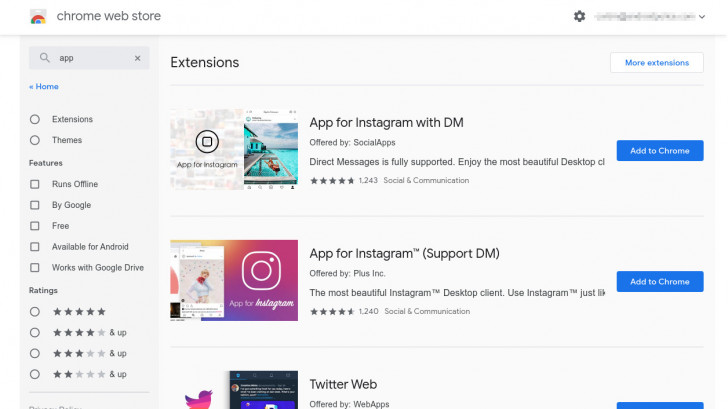
One of the first articles I wrote here at Android Police was about how Google planned to phase out apps from the Chrome Web Store, believing Progressive Web Apps to be the future. Fast forward three years, and while I’m still hanging around this lovely site, Chrome Web Store apps aren’t long for this world.
One upon a time, the Chrome Web Store offered “packaged” applications (web apps that ran locally, sometimes with elevated permissions), “hosted” applications (web apps that were just links to websites), and regular browser extensions. Google phased out all types of apps across all platforms, except Chrome OS, in early 2018. In fact, if you visit the Web Store on anything but a Chromebook, the apps section is invisible.
Google is now planning the second phase of this process, which starts in a few months, when the company will no longer accept new apps to the Web Store. Throughout the year, support for apps will be removed from all platforms except Chrome OS, except in organizations that need time to transition to other technologies. In 2022, the final bits of code for app support will be ripped out of both Chrome and Chrome OS.
- March 2020: Chrome Web Store will stop accepting new Chrome Apps. Developers will be able to update existing Chrome Apps through June 2022.
- June 2020: End support for Chrome Apps on Windows, Mac, and Linux. Customers who have Chrome Enterprise and Chrome Education Upgrade will have access to a policy to extend support through December 2020.
- December 2020: End support for Chrome Apps on Windows, Mac, and Linux.
- June 2021: End support for NaCl, PNaCl, and PPAPI APIs.
- June 2021: End support for Chrome Apps on Chrome OS. Customers who have Chrome Enterprise and Chrome Education Upgrade will have access to a policy to extend support through June 2022.
- June 2022: End support for Chrome Apps on Chrome OS for all customers.
Perhaps the most interesting part of the timeline is the end-of-life date for the NaCl, PNaCl, and PPAPI APIs. Google once positioned NaCl/PNaCl (also known as Google Native Client) as a way to run machine-executable code in a browser sandbox. While it was used for a few high-profile applications, like the original web-based Google Earth, it never caught on as a browser standard, and was eventually superseded by WebAssembly. PPAPI, an implementation of Native Client intended to make sandboxed browser plugins with, was only ever used for the Chrome implementation of Adobe Flash Player.
This doesn’t affect Chrome extensions, which will continue to be supported — in fact, Google is in the process of establishing an updated format for all extensions (which has come with some criticism).
https://www.androidpolice.com/2020/01/15/google-will-end-support-for-chrome-web-store-apps-starting-this-year/
